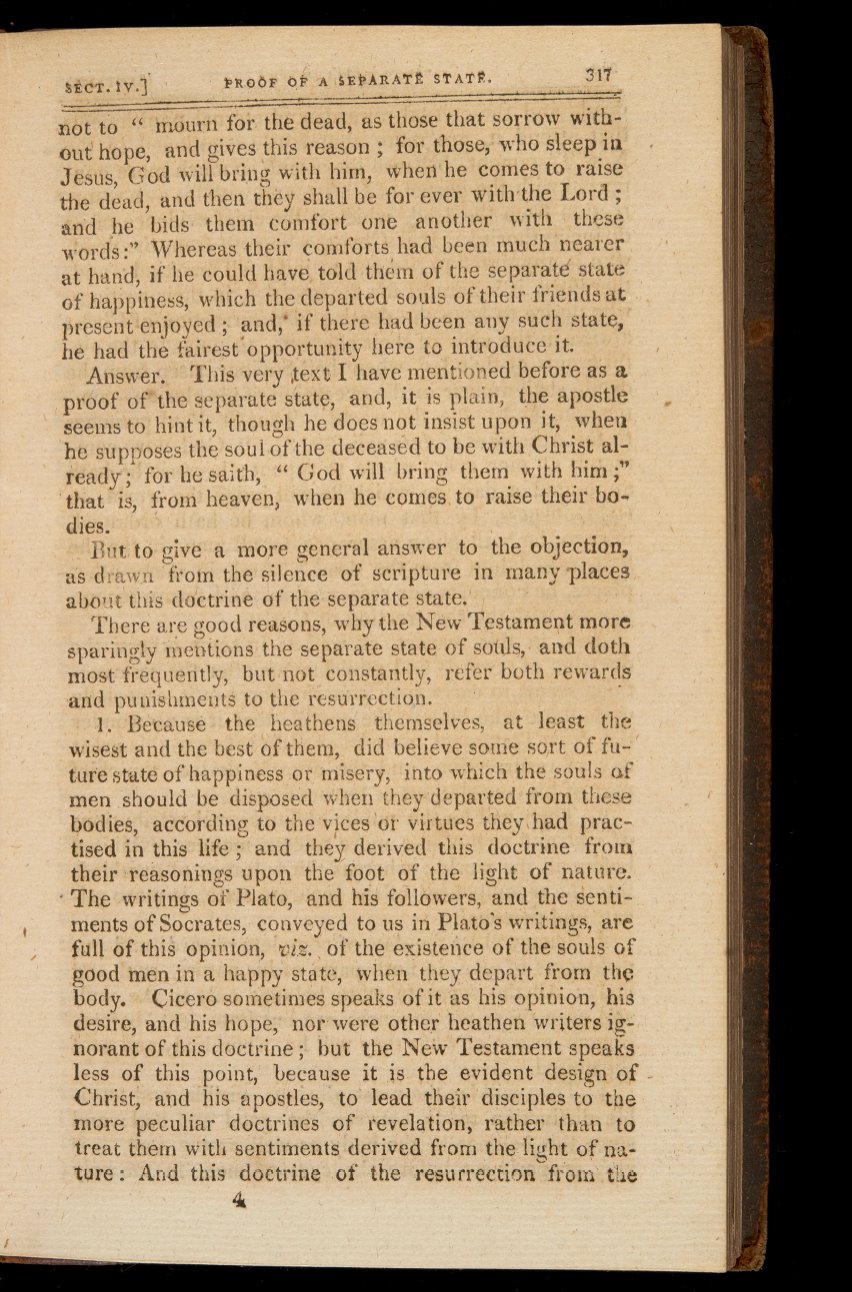

SECT.
117.3
IPRO$F OF
A
SEPARATE
STATx.
317
not
to
"
mourn for the dead, as those
that
sorrow with-
out
hope, and gives this
reason
;
for
those,
who
sleep
in
Jésus, God
will
bring with
him, when
he comes to
raise
the
dead, and then they shall
be
for ever with"the
Lord
;
and
he bids
them comfort one
another
with these
words:" Whereas
their
comforts had
been much
nearer
at
hand,
if
he
could have told them
of
the
separate
state
of
happiness, which the
departed
souls
of their friends
at
present
enjoyed
;
and,'
if
there
had been any such
state,
he had
the
fairest'opportunity
here
to
introduce
it.
Answer.
This
very
text I
have
mentioned before
as
a
proof
of the separate state, and,
it
is
plain,
the apostle
seems
to
hint
it,
though he does
not
insist
upon
it,
when
he supposes the
soul
of
the deceased
to be
with
Christ al-
ready;
for
he
saith,
God
will
bring them with him
;"
that
is,
from heaven, when he comes. to
raise
their bo-
dies.
But, to give
a more general
answer
to
the objection,
as drawn from
the silence
of scripture in many
places
about
this
doctrine of the separate
state.
There
are good reasons,
why
the New
Testament
more
sparingly
mentions the
separate state
of
sotds,
and
cloth
most
frequently,
but not
constantly,
refer both rewards
and punishments
to the
resurrection.
1.
Because the
heathens
themselves,
at
least the
wisest
and
the best
of
them,
did believe
some
sort
of fu-
ture state of
happiness or
misery,
into
which
the
souls
of
men should
be
disposed
when
they
departed
from these
bodies, according
to
the
vices Or
virtues
they,had prac-
tised in this
life
and they derived this
doctrine from
their
reasonings upon
the foot
of
the light
of
nature.
The
writings
of
Plato, and
his followers,
and
the
Senti-
ments
of
Socrates,
conveyed to us in
Plato's
writings,
are
full
of
this opinion,
viz.
of
the existence
of
the
souls
of
good men in
a happy
state, when they
depart
from
the
body.
Cicerò
sometimes speaks
of
it
as his
opinion,
his
desire, and
his
hope,
nor
were
other
heathen writers
ig-
norant of
this
doctrine but the New
Testament
speaks
less
of
this
point, because
it
is
the evident
design
of
Christ, and
his
apostles, to
lead
their
disciples to
the
more peculiar doctrines
of
revelation,
rather
than
to
treat
them with
sentiments derived
from the
light
of
na-
ture
:
And
this
doctrine
of
the
resurrection
from
the
4

















